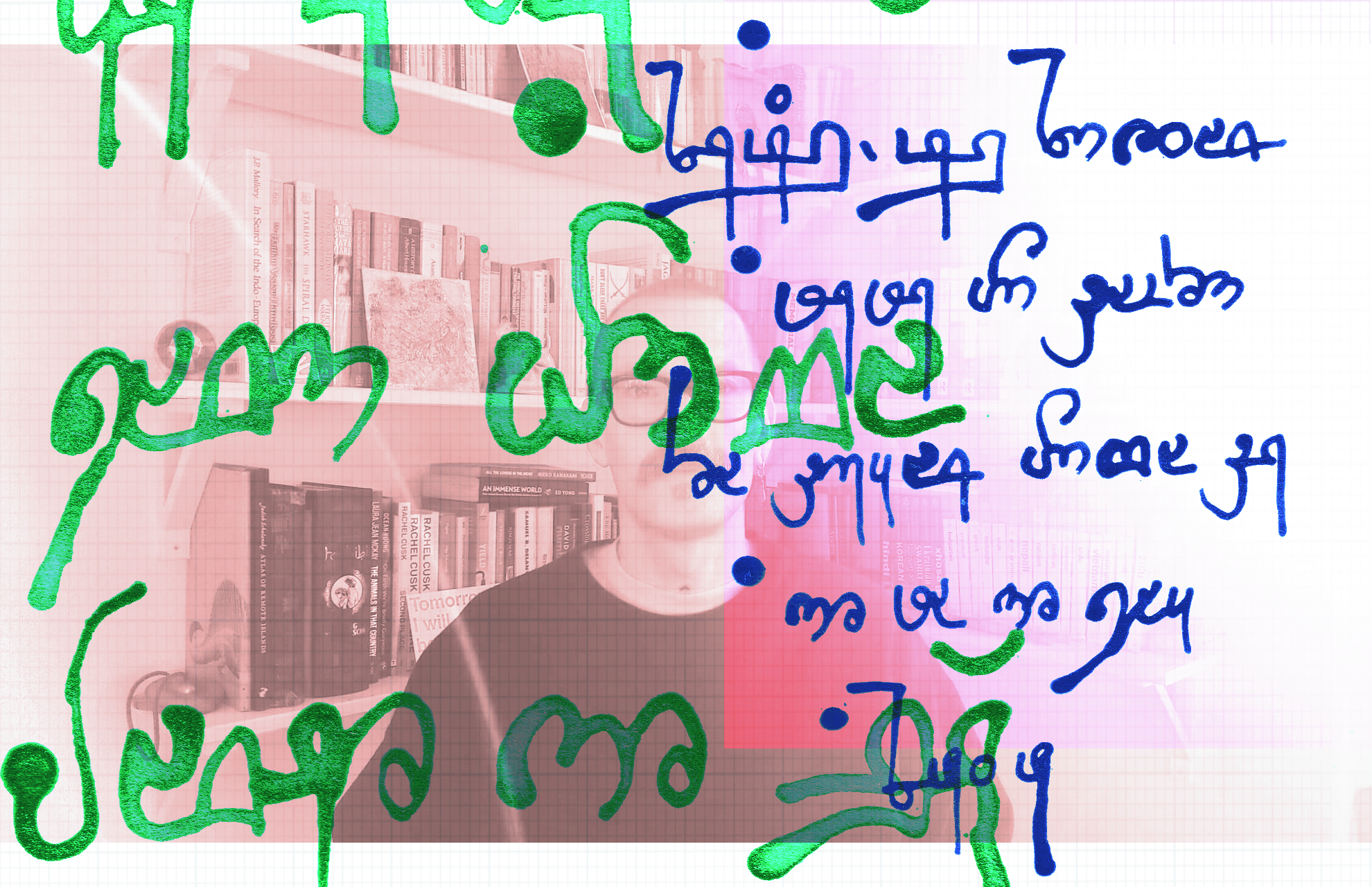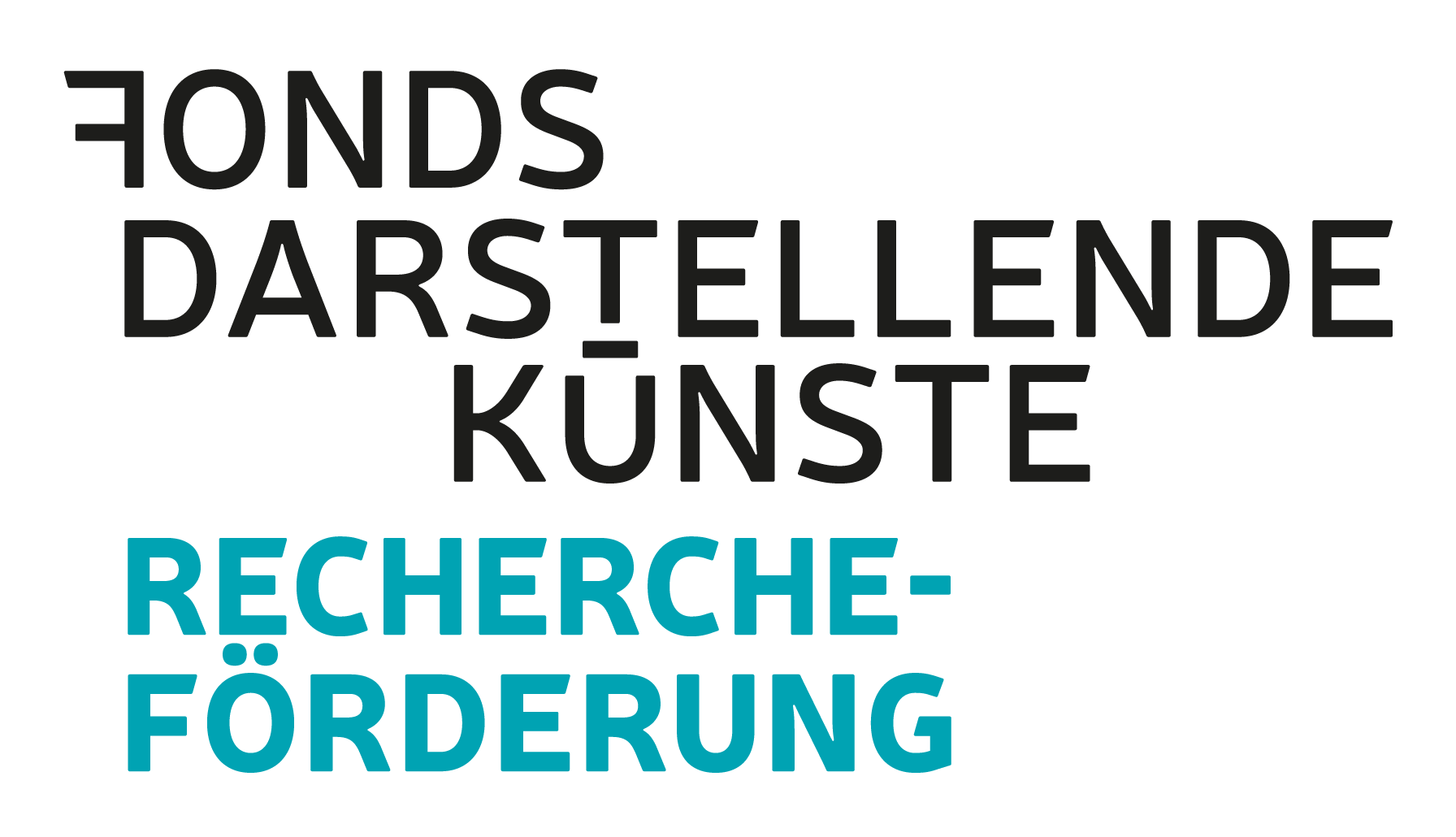‘Autistic Long-Form’ as an Artistic Methodology
Format: Research project
Dates: Nov 2023 — Jan 2024
Language: English
Publication: Online
Dates: Nov 2023 — Jan 2024
Language: English
Publication: Online

Research, text, documents: Aslan
Introduction
With a research stipend from the Fonds Darstellende Künste, I will investigate how a Crip-Queer approach will transform my artistic practice and work with the collective ONCE WE WERE ISLANDS by placing accessibility at its heart.
In February 2023, I was diagnosed as autistic and an official diagnosis has convinced me it is time to radically reassess how I work, how we work together and who we make work for. What will happen if accessibility — for ourselves, our co-collaborators, our audiences — is the first thing I think about? Are there radical ways to reconsider artistic methodologies and approaches to touring and Gastspiele?
I am inspired by The Future Is Disabled by disabled and autistic activist Leah Lakshmi Piepzna-Samarasinha, and, in particular, her concept of ‘Autistic Long-Form’. Autistic people tell stories in a different way: the path is longer and winding with diversions and detours built in.
I ask: how can I approach collective writing by embracing a strategy of detours and diversions rather than forcing my storytelling to conform? Can these expansive new forms make my work accessible to different and diverse audiences?
A research grant will give me the time and resources to explore written and performative text using the concept of Autistic Long-Form as my guide, investigate texts written by disabled artists, exchange with other makers and experts, formulate best practice documents to share with our peers, and discuss access with Ballhaus Ost, our long term partner in Berlin.
I ask: how can I approach collective writing by embracing a strategy of detours and diversions rather than forcing my storytelling to conform? Can these expansive new forms make my work accessible to different and diverse audiences?
A research grant will give me the time and resources to explore written and performative text using the concept of Autistic Long-Form as my guide, investigate texts written by disabled artists, exchange with other makers and experts, formulate best practice documents to share with our peers, and discuss access with Ballhaus Ost, our long term partner in Berlin.
Writings
Questions to Begin With
Systems & Mitigations of Care
A System of Care
On Irony & Asshattery
A Glossary
Conclusions
Interviews
Interview One
Interview Two
Interview Three
Interview Four
Additional interviews were carried out with Toria Banks, Zed Lightheart, Luke Pell, Angharad Evans and Inky Lee. I’ve chosen not to make these interview transcripts public.
Bibliography
The Future is Disabled — Prophecies, Love Notes, and Mourning Songs
Leah Lakshmi Piepzna-Samarasinha,
Empire of Normality
Robert Chapman
Authoring Autism: On Rhetoric and Neurological Queerness (Thought In The Act) Melanie Yergeau
The Curious Incident of the Dog in the Night-Time
Mark Haddon
Neurotribes — The Legacy of Autism and the Future of Neurodiversity
Steve Silberman
The Power of Neurodiversity
Thomas Armstrong
All the Weight of our Dreams — On Living Racialized Autism
ed. Brown, Ashkenazy, Onaiwu
Matters of Care
Mariá Puig de la Bellacasa
Resources & Links
Leah Lakshmi Piepzna-Samarasinha website — www.brownstargirl.org
‘Performance. Disability. Art.: Public Celebrations of Love, Creativity, and Disability’, Syrus Marcus Ware, Wordgathering — https://wordgathering.com/vol15/issue4/disability-futures/ware/
‘Imagining Otherwise: : Autism, Neuroaesthetics and Contemporary Performance’, Nicola Shaughnessy, Interdisciplinary Science Reviews, 2013 — https://www.tandfonline.com/doi/abs/10.1179/0308018813Z.00000000062
‘Quirky dramaturgy in contemporary UK theatre: autism, participation and access’, Alex Leggett, BIRon - Birkbeck Institutional Research Online, 2020 — https://eprints.bbk.ac.uk/id/eprint/51632/1/Alex%20Leggett%20PhD%20Final%20Version.pdf
‘Stimming as a Neurodivergent Performance Practice’ — https://www.siobhandavies.com/blog-stimming/
Sins Invalid website — https://www.sinsinvalid.org
Sins Invalid: An Unshamed Claim To Beauty (32 min), 2013 — https://www.sinsinvalid.org/documentary
10 Principles of Disability Justice, Patty Berne and Sins Invalid — https://static1.squarespace.com/static/5bed3674f8370ad8c02efd9a/t/5f1f0783916d8a179c46126d/1595869064521/10_Principles_of_DJ-2ndEd.pdf
Making a Difference, Berlin website — https://making-a-difference-berlin.de/en/about/
Neuk Collective website — https://neukcollective.co.uk/
Simon Yuill website — https://simonyuill.info/
Not Going Back To Normal manifesto & website — https://www.notgoingbacktonormal.com/
The Unfinished Archive project by artists Matilda Feyiṣayọ Ibini, Shahid Iqbal Khan and Tom Ryalls at the Royal Court theatre — https://royalcourttheatre.com/the-unfinished-archive/
Guide Gods Digital Collection — a podcast series about religion and disability, Claire Cunningham, 2014 — https://www.clairecunningham.co.uk/guide-gods-digital-collection/
Graeae website, accessibility resources — https://graeae.org/accessibility/
The Art of Inclusion: Empowering Neurodiversity in Theatre, On The Stage blog,
https://onthestage.com/blog/the-art-of-inclusion-empowering-neurodiversity-in-theatre/
How To Unfuck The World, Jo Bannon, 2018 https://weareunlimited.org.uk/blog/how-to-unfuck-the-world/
Unlimited festival website, resources page — https://weareunlimited.org.uk/resources/
No Limits festival website — https://www.no-limits-festival.de/english/
Access All Areas website — https://accessallareasproductions.org/about-us/
Disability Arts Online — https://disabilityarts.online/
Disability Arts International, resources page — https://www.disabilityartsinternational.org/resources/
In All Our Stimming Brilliance — neurodiversity in contemporary arts practice, three part online course, 2023, Scottish Artists Union — https://www.artistsunion.scot/in_all_our_stimming_brilliance

The lead image is a digital collage by Chris Gylee, using calligraphy by Aslan. Thumbnail image is a portrait by Óscar González, October 2023.
‘Autistic Long-Form as an Artistic Methodology’ is a research project by Aslan, supported by Fonds Darstellende Künste with funds from the Federal Government Commissioner for Culture and the Media.
Additional thanks to: Chris Gylee; Angharad Evans; Zed Lightheart; Toria Banks; Inky Lee; Luke Pell.